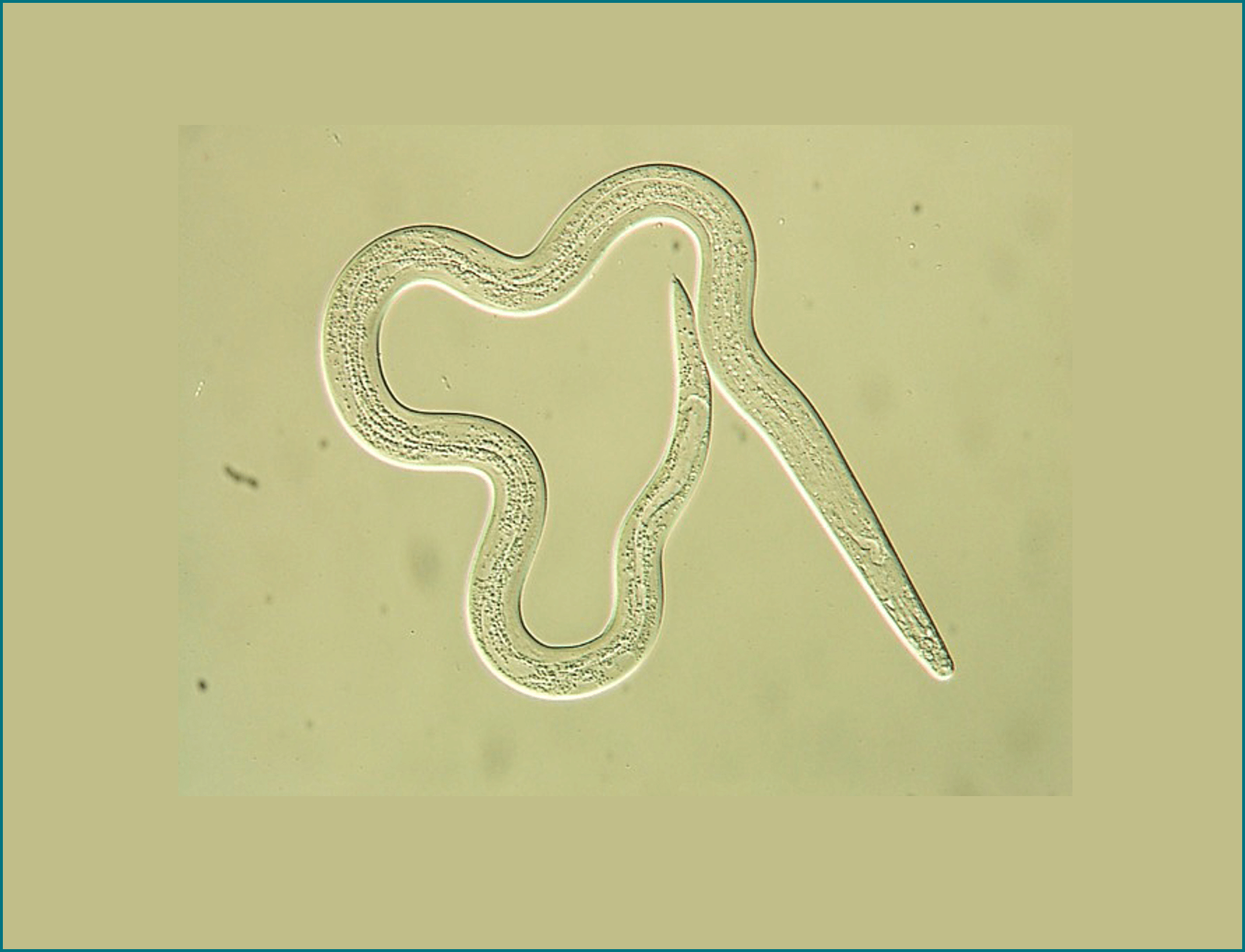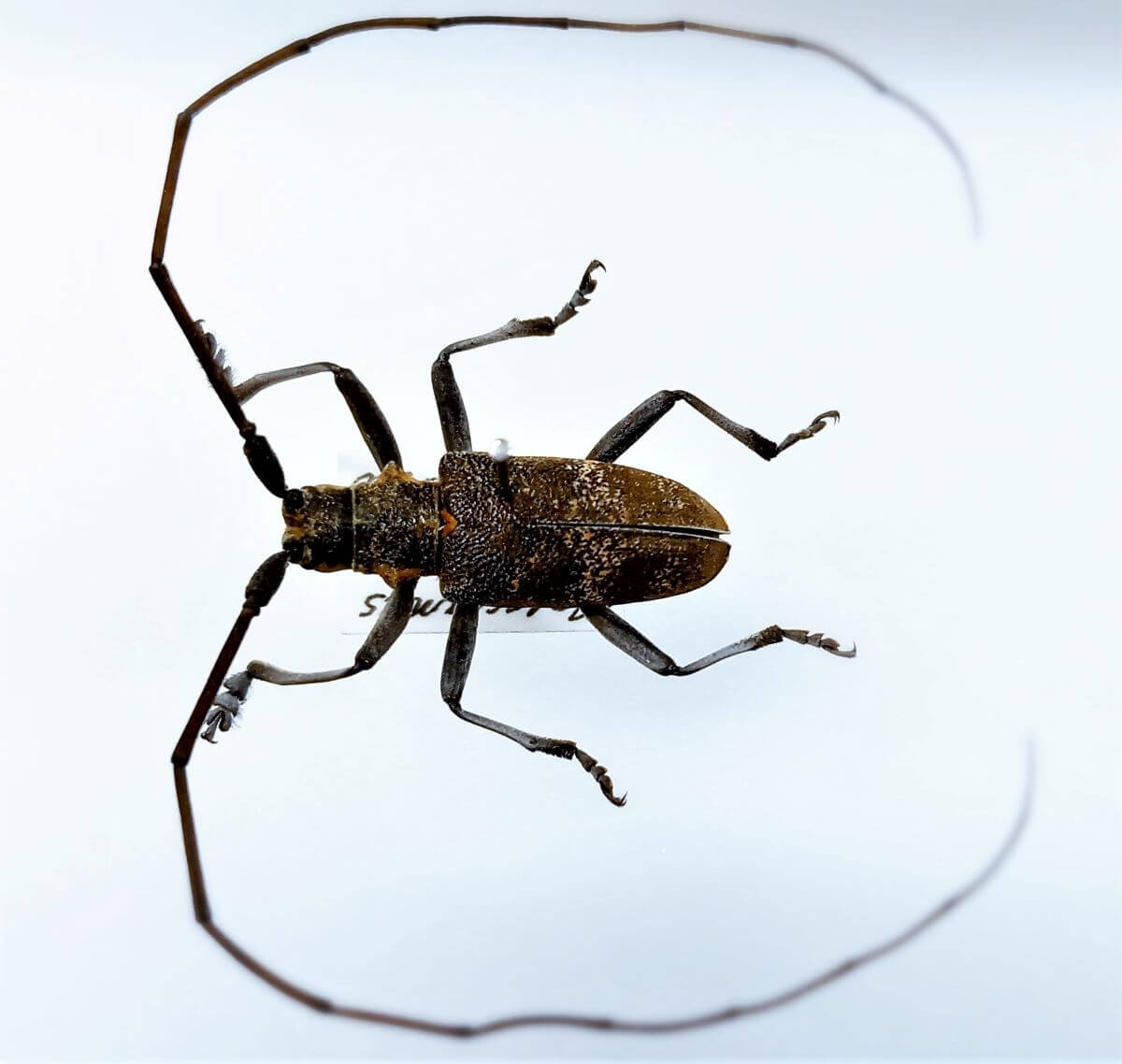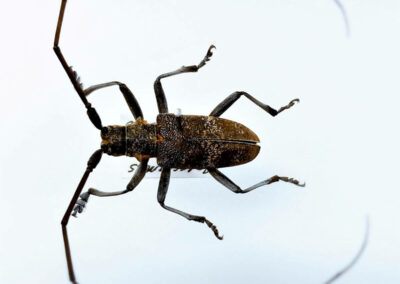Emerging risks
Reassessing the threat posed by pinewood nematode to UK forestry
Project lead(s)
Dr Sarah Facey | Entomology Response Manager | Forest Research
Talor Witham | PhD Student | Forest Research and University of Reading
Contributors/partners
Dr James Ryalls & Dr Robbie Girling, (University of Reading)
Dr Thomas Prior & Dr Beth Lawson (FERA York)
Dr Luís Bonifácio and Dr Maria Lurdes Inácio, (INIAV, Portugal)
Project status Active (Duration 3 years)
Project funding £210K
Research outcome Response
Description
Pine wilt disease (PWD) is a lethal wilting disease recognised as one of the most serious threats to conifer forestry worldwide. The disease is caused by the pinewood nematode (PWN), Bursaphelenchus xylophilus, which travels on the bodies of Monochamus Cerambycid beetles. PWN enter trees through beetle feeding wounds, grow inside the trees and gather on developing beetles inside the wood. PWN has formed new associations with native Monochamus beetles in countries outside of its native North American range. It has not previously encountered these species in evolutionary history. PWN has been intercepted on infested packaging material coming through UK ports and processors and could arrive in the UK. However, the UK has no indigenous Monochamus species. Other beetles in the UK, can carry PWN at low densities, but are these numbers high enough to establish the species and act as effective vectors?
This is a horizon scanning PhD project that seeks to inform future forestry about the risks posed if PWN arrives in the UK. The project examines the relationship between Monochamus and PWN and will:
- Perform experiments exposing PWN to a range of beetle life stages from UK species, both with and without the co-presence of Monochamus to assess nematode responses to chemical cues.
- Characterise and compare the volatile organic cuticular compounds (VOCCs), chemical cues given off by the UK beetle species (potential carriers/vectors) to those found in Monochamus
- Develop new in-field protocol for testing via a VOCC-based tool to enable in-field PWN detection.
- Draw up actionable recommendations for PWN.
Outputs
This project will deliver:
-
- Peer reviewed journal articles.
- Recommendations for policies regarding PWN in the UK.
- Protocol for in-field PWN detection that could be applied internationally.

Related Projects
Our Partners
Explore
Contact
© 2022 Centre for Forest Protection. All rights reserved.


